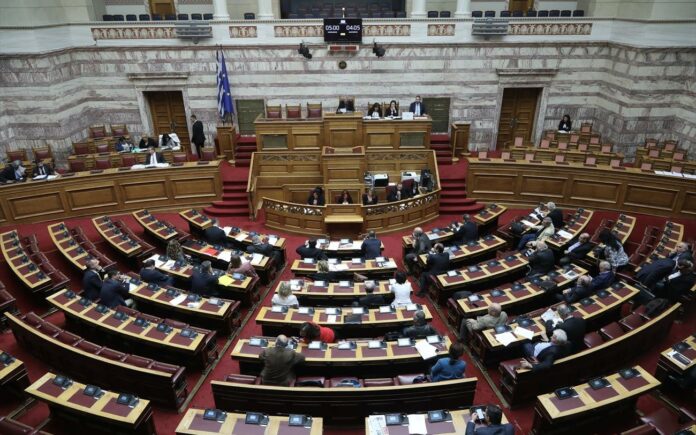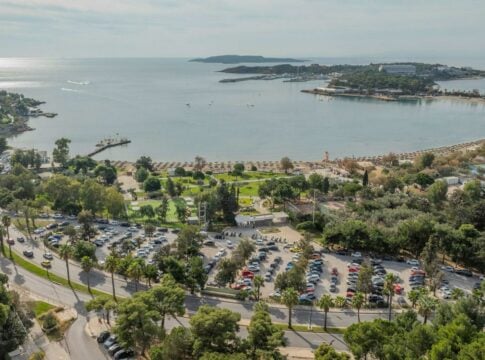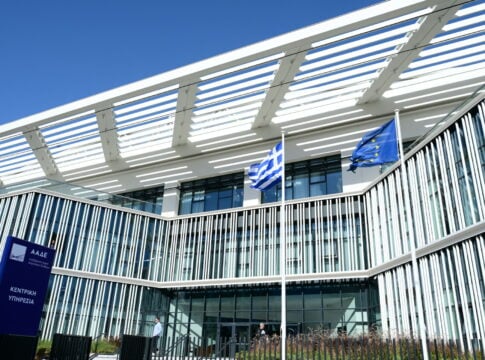Decades-old efforts to revise a controversial article in the Greek constitution essentially preventing the establishment and operation of non-state universities in the eastern Mediterranean country again fell short this week, during the first of two votes necessary in the process to revise the constitution.
Opposition by ruling SYRIZA party, which fields 146 deputies in Parliament and continues to hold a government mandate by adding support from a “politically mixed” group of six independent MPs, doomed the latest effort to revise article XVI.
At the same time, the arguments used by a bevy of SYRIZA ministers and deputies to sharply oppose the prospect of non-state universities in the country caused even more reactions on the part of political rivals and much of Greek society, where a large percentage of degree-holders have studied, taught and conducted research abroad at all tertiary levels. A recent opinion poll, by the MRB firm for the think tank diaNEOsis, indicated that two out of three Greeks believe non-state universities should be allowed to operate in Greece.
The proposal to revise the article did not receive 151 votes in the 300-deputy parliament. Had the proposal received 151 votes, it would have needed another 151 MPs in favor during a second vote on March 13, but with the final confirmation coming in the next parliament plenum to arise from general elections, whereby it would have needed 180 deputies (out of 300) for the revision to take effect.
“Private universities are for-profit institutions, they merely do not distribute profits,” was the opinion of Education Minister Kostas Gavroglu, himself a university professor who has taught abroad, a day after the failed attempt at overhauling Article XVI.
He replied to criticism by main opposition New Democracy (ND) MP Anastasios Dimoschakis, who from Parliament’s podium bemoaned the fact that it will take another 10 years before a constitutional revision can be undertaken.
The ND deputy also took direct aim at Gavroglu, saying the latter’s CV boasts of “teaching at private universities in America”.
In bypassing the North American “model”, which includes many of the world’s finest universities, many of whom are non-state, non-profit universities, Gavroglu pointed to Europe, where he said private universities were few and of low quality.
“Private universities are not a European tradition, this is basically an American tradition,” he said in defending the Greek state’s monopoly – as enshrined in the 1975 constitution – in the tertiary education sector.
The illiberal prohibition only covers higher education, as pre-schools, kindergartens, primary and secondary schools – most for profit and others operating on a non-profit basis – are widely available in the country.
Another SYRIZA cadre, Alternate Defense Minister Panagiotis Rigas, noted during a television appearance that “there is no private university in Europe; there are non-state, non-profit ones, but that’s another story.
Another oft-repeated argument by the leftist government to deflect the prospect of revising Article XVI centered on the loans often taken out by college students to pay for tuition and other university expenses.
“This phenomenon has become generalized; students needing to take out loans to study,” Digital Policy Minister Nikos Pappas, himself a former post-grad student in Scotland, told a local radio station.
Pappas, among the closest associates of Greek Prime Minister Alexis Tsipras, explained leftist SYRIZA’s opposition to the revision in such a manner:
“The principle of protecting the public good is the one that must be applied to the development of sciences; this cannot be accomplished with developmental criteria benefiting only private interests, which comprise only a portion of the interests of society as a whole.”
Along those same lines, Foreign Minister Giorgos Katrougalos echoed a recent Forbes article, which put the total US student loan debt at 1.5 trillion USD.
Katrougalos also bypassed the fact that most US public and state universities also charge tuition fees, require text books that must be purchased for classes, and, of course, dormitory charges for students wishing to live on campus, in order to attack ND president Kyriakos Mitsotakis, a Harvard and Stanford alumnus and a strong proponent of non-state universities in Greece, stating:
“It’s obvious for a person (Mitsotakis), who has declared that the difference between rich and poor is artificial, to not understand that the great subjugation for 40 million Americans is to owe more than 100,000 dollars (each) in order to have access to a good such as education, which under our constitution is designated as a common good and as a social right …Obviously, when you don’t need a loan or if you’ve taken out a loan and repaid it easily, you don’t realize what a major class barrier this is, for a child from a rural or working class family to study at the university,” Katrougalos said.
An even more radical opinion was expressed by an up-until-recently MP who supported the government majority, Thanassis Papachristopoulos, a dermatologist by training who was elected with the right-wing Independent Greeks (AN.EL) party before resigning last week.
“The top universities, like Harvard, LSE, Stanford and the rest, I’d say about 30, have led to 28 people in the entire world accumulating the wealth in their hands, having as much as half of the rest of the planet combined,” he told a radio program.
ND, among others, was scathing in its criticism of now poll-trailing SYRIZA, with its MPs pointing out that non-state universities operate practically everywhere in the world – including North Korea and Cuba.
The opposition’s other arguments in favor of a revision of Article XVI – beyond the obvious fact that a national constitution includes a provision that restricts a citizen’s right to study, teach, conduct research and work at a non-state university – is the massive “brain drain” that occurs annually with younger Greeks seeking a higher education aboard, along with the commensurate export of capital, and the fact that Greece’s numerous state-run colleges and universities face little or no internal competition.














